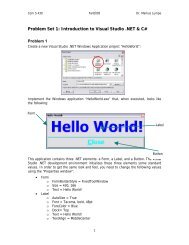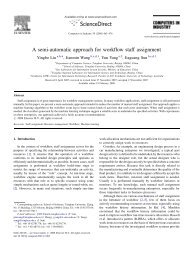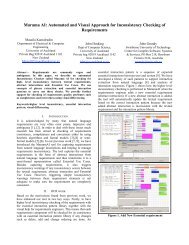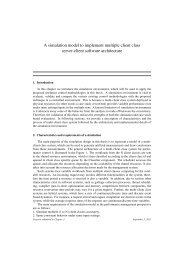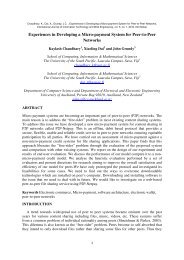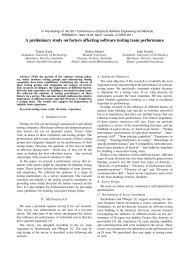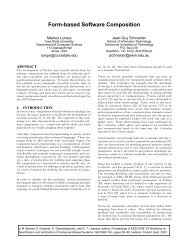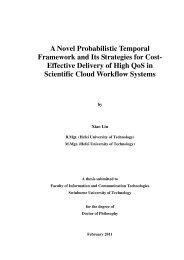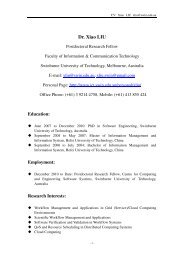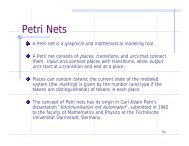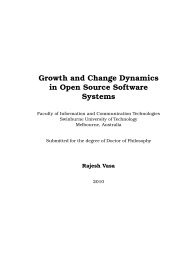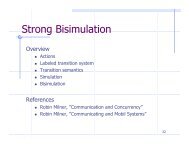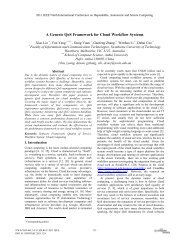A Rationale-based Model for Architecture Design Reasoning
A Rationale-based Model for Architecture Design Reasoning
A Rationale-based Model for Architecture Design Reasoning
Create successful ePaper yourself
Turn your PDF publications into a flip-book with our unique Google optimized e-Paper software.
4.1. Software engineering research methods<br />
there is a cross boundary situation. For instance, a situation where engineering and management<br />
issues are to be considered together, then what research method should be used?<br />
Additionally, the maturation of software technology over time [138] adds another dimension<br />
to software engineering research. Different kinds of problems require different<br />
research paradigms. Different research settings also post different research questions.<br />
Hence, the methods and techniques used would vary accordingly. A summary of these<br />
research settings are listed:<br />
• Feasibility - Is there a X, and what is it? Is it possible to accomplish X at all?<br />
• Characterisation - What are the characteristics of X? What do we mean by X? What<br />
are the varieties of X and how are they related?<br />
• Methods/Means - How to accomplish X? What is a better way to accomplish X?<br />
How can I automate doing X?<br />
• Generalisation - Is X always true of Y? Given X, what will Y be?<br />
• Selection - How do I decide between X and Y?<br />
Given different research settings, the answers that are sought would be quite different<br />
in nature. The techniques that are required to validate those answers would also vary<br />
[138]. A summary of these techniques are listed below:<br />
• Persuasion - use arguments to support the ideas that have been put <strong>for</strong>ward by going<br />
through an example.<br />
• Implementation - use a prototype or a case study to demonstrate the idea.<br />
• Evaluation - compare different objects of research using a check-list of criteria. The<br />
comparison of measurements <strong>for</strong>ms the basis of the evaluation. This approach can<br />
use expert-opinion an a basis <strong>for</strong> evaluation.<br />
• Analysis - analyse the facts and the consequences through derivation and proof of<br />
a <strong>for</strong>mal model, or use empirical methods such as statistical methods to carry out<br />
analysis in a controlled situation.<br />
• Experience - a subjective evaluation <strong>based</strong> on personal experience and observations<br />
about the use of the result in actual practice.<br />
Since case study research are often validated using anecdotal evidence which can be<br />
subjective, careful justifications of the evidence would be necessary.<br />
Yin described six<br />
48



